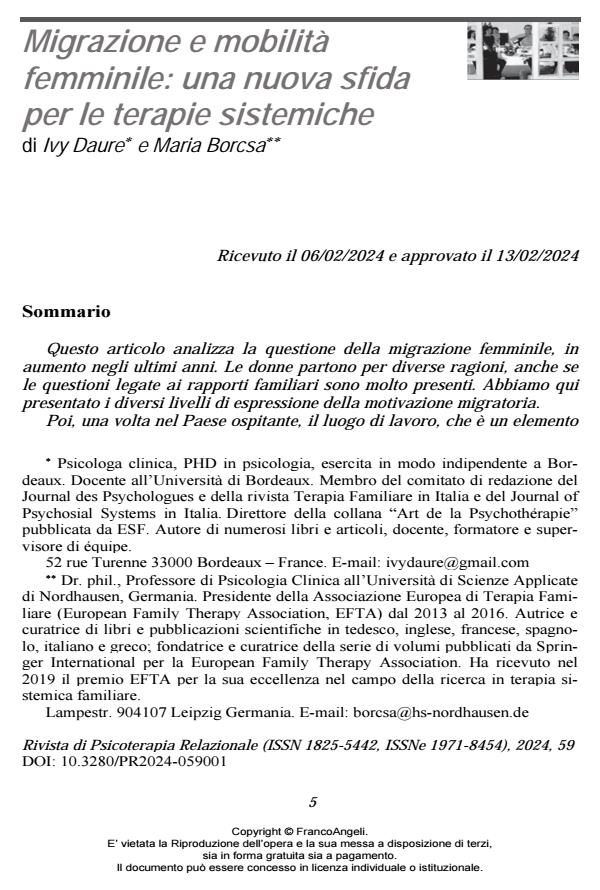Female migration and mobility: a new challenge for systemic therapies
Journal title RIVISTA DI PSICOTERAPIA RELAZIONALE
Author/s Ivy Daure, Maria Borcsa
Publishing Year 2024 Issue 2024/59
Language Italian Pages 21 P. 5-25 File size 264 KB
DOI 10.3280/PR2024-059001
DOI is like a bar code for intellectual property: to have more infomation
click here
Below, you can see the article first page
If you want to buy this article in PDF format, you can do it, following the instructions to buy download credits

FrancoAngeli is member of Publishers International Linking Association, Inc (PILA), a not-for-profit association which run the CrossRef service enabling links to and from online scholarly content.
This article addresses the issue of female migration, which has been gaining in topicality and pertinence in recent years. Women leave for various reasons, but issues related to family relationships remain very present. We have showcased here the different levels of expression of migratory motivation. Then, once in the host country, the workplace becomes a significant if not pivotal element of the migrant’s dignity and her place in the society in which she lives. This aspect is subsequently elaborated on in the article. Motherhood, with what this phase represents in a migratory context, and the importance of the 4Ss of parenting become the further focal point. The role of information and communication technologies (ICTs) in international contacts and the bonds that migrant women maintain with their families back home will also be analysed. In this paper, we will use a series of clinical situations to illustrate our points.
Keywords: migration, mobility, therapy, women, work, parenting.
Ivy Daure, Maria Borcsa, Migrazione e mobilità femminile: una nuova sfida per le terapie sistemiche in "RIVISTA DI PSICOTERAPIA RELAZIONALE " 59/2024, pp 5-25, DOI: 10.3280/PR2024-059001